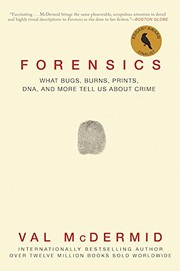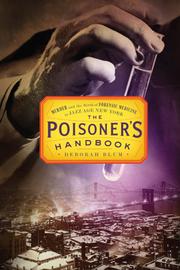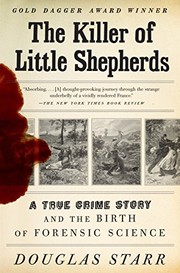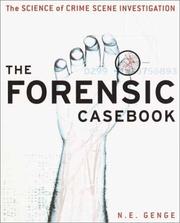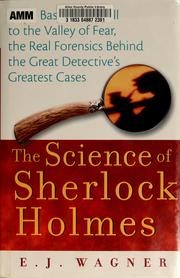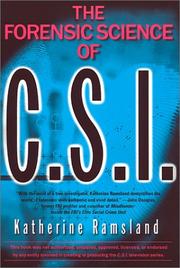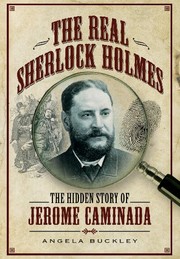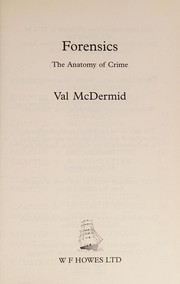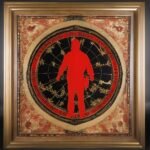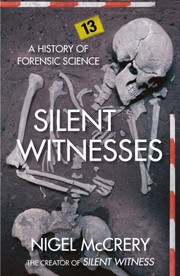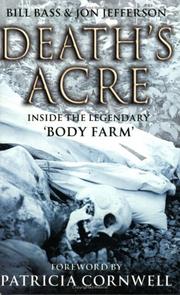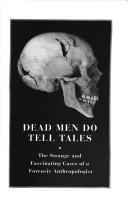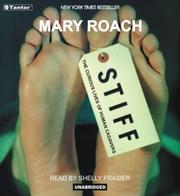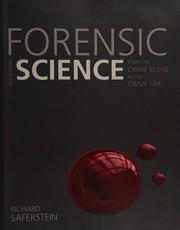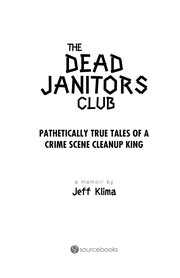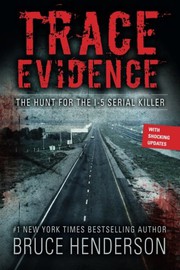Are you fascinated by the world of forensic science? Whether you’re a true crime enthusiast or aspiring to enter the field, these 20 best books about forensic science are sure to captivate and educate you. Delve into the intricacies of crime scene investigation, forensic psychology, and the cutting-edge techniques used to solve mysteries. From classic works by renowned experts to gripping true crime narratives, each book on forensic science offers a unique perspective on the science behind criminal investigations. Get ready to expand your knowledge and immerse yourself in the thrilling world of forensic science with these must-read forensic science books.
Contents
- 1 20 Best Forensic Science Books
- 2 Forensics: What Bugs, Burns, Prints, DNA, and More Tell Us About Crime
- 3 The Poisoner’s Handbook: Murder and the Birth of Forensic Medicine in Jazz Age New York
- 4 The Killer of Little Shepherds: A True Crime Story and the Birth of Forensic Science
- 5 The Cadaver King and the Country Dentist: A True Story of Injustice in the American South
- 6 The Forensic Casebook: The Science of Crime Scene Investigation
- 7 The Science of Sherlock Holmes: From Baskerville Hall to the Valley of Fear, the Real Forensics Behind the Great Detective’s Greatest Cases
- 8 The Anatomy of Violence: The Biological Roots of Crime
- 9 The Forensic Science of C.S.I.
- 10 The Real Sherlock Holmes: The Hidden Story of Jerome Caminada
- 11 Forensics: The Anatomy of Crime
- 12 Silent Witnesses: The Often Gruesome but Always Fascinating History of Forensic Science
- 13 Death’s Acre: Inside the Legendary Forensic Lab the Body Farm Where the Dead Do Tell Tales
- 14 Dead Men Do Tell Tales: The Strange and Fascinating Cases of a Forensic Anthropologist
- 15 Stiff: The Curious Lives of Human Cadavers
- 16 Forensic Science: From the Crime Scene to the Crime Lab
- 17 The Murder Room: The Heirs of Sherlock Holmes Gather to Solve the World’s Most Perplexing Cold Cases
- 18 Criminal Profiling: An Introduction to Behavioral Evidence Analysis
- 19 The Dead Janitors Club: Pathetically True Tales of a Crime Scene Cleanup King
- 20 Trace Evidence: The Hunt for the I-5 Serial Killer
- 21 Shattered: The True Story of a Mother’s Love, a Husband’s Betrayal, and a Cold-Blooded Texas Murder
- 22 Final Thoughts on Best Forensic Science Books
- 23
20 Best Forensic Science Books
Forensics: What Bugs, Burns, Prints, DNA, and More Tell Us About Crime
by Val McDermid
Forensics: What Bugs, Burns, Prints, DNA, and More Tell Us About Crime by Val McDermid is an enthralling exploration of the world of forensic science. McDermid, a renowned crime writer, delves into the fascinating realm of criminal investigation, shedding light on the techniques and technologies that help solve some of the most puzzling cases.
This book on forensic science takes readers on a captivating journey through the various aspects of forensic investigation, from the study of insects and their role in determining time of death to the analysis of fingerprints and DNA evidence. McDermid’s engaging writing style and meticulous research make this book about forensic science a compelling read for anyone interested in the intersection of science and crime solving.
With real-life case studies and compelling examples, Forensics offers a gripping insight into the world of forensic science, making it a must-read for true crime enthusiasts, aspiring detectives, and anyone with a curiosity about the methods used to unravel the mysteries of criminal behavior.
The Poisoner’s Handbook: Murder and the Birth of Forensic Medicine in Jazz Age New York
by Deborah Blum
The Poisoner’s Handbook is a captivating book about forensic science, written by Deborah Blum. Blum takes readers on a thrilling journey through Jazz Age New York, exploring the birth of forensic medicine and the groundbreaking work of two pioneering scientists, Charles Norris and Alexander Gettler. This gripping narrative delves into the world of poisoners and the deadly substances they used, from cyanide to arsenic, and the innovative techniques developed to detect and analyze these toxins. Blum’s vivid storytelling brings to life the dangerous cat-and-mouse game between murderers and the forensic investigators who sought to bring them to justice.
Through meticulous research and compelling storytelling, The Poisoner’s Handbook offers a fascinating glimpse into the early days of forensic science, as well as the societal and political challenges faced by Norris and Gettler in their pursuit of justice. Blum’s narrative is as informative as it is enthralling, making this book a must-read for anyone interested in the history of forensic science.
The Killer of Little Shepherds: A True Crime Story and the Birth of Forensic Science
by Douglas Starr
The Killer of Little Shepherds: A True Crime Story and the Birth of Forensic Science by Douglas Starr is a captivating book on forensic science that delves into the fascinating world of criminal investigation and the development of forensic techniques. Starr chronicles the gripping true story of a notorious serial killer in late 19th-century France, and the pioneering forensic scientists who worked tirelessly to bring him to justice.
Through meticulous research and compelling storytelling, Starr takes readers on a journey through the early days of forensic science, exploring the groundbreaking methods and technologies that were used to solve the case. From the use of fingerprinting to the development of forensic anthropology, this book offers a riveting look at the birth of modern criminal investigation.
With its blend of true crime drama and historical insight, The Killer of Little Shepherds is a must-read for anyone interested in the history of criminal justice and the evolution of forensic science.
The Cadaver King and the Country Dentist: A True Story of Injustice in the American South
by Radley Balko and Tucker Carrington
The Cadaver King and the Country Dentist by Radley Balko and Tucker Carrington is a gripping book about forensic science that delves into a shocking tale of injustice in the American South. The authors uncover the disturbing story of two Mississippi men, Dr. Steven Hayne and Dr. Michael West, whose dubious practices and testimony led to the wrongful convictions of countless individuals.
Through meticulous research and compelling storytelling, Balko and Carrington shed light on the flawed criminal justice system and the devastating impact of these two men’s actions. They explore the intersection of race, class, and power in the legal system, exposing the deep-seated corruption that allowed for such miscarriages of justice to occur.
This forensic science book is a powerful and eye-opening account of the flaws within the criminal justice system and the dire consequences of unchecked authority. The Cadaver King and the Country Dentist is a must-read for anyone interested in true crime, social justice, and the complexities of the legal system.
The Forensic Casebook: The Science of Crime Scene Investigation
by Ngaire E. Genge
The Forensic Casebook: The Science of Crime Scene Investigation by Ngaire E. Genge is a fascinating and in-depth exploration of the world of forensic science. This book delves into the intricate and complex methods used by forensic experts to solve crimes, from analyzing blood spatter patterns to identifying human remains. Genge provides real-life case studies and examines the role of forensic science in high-profile criminal investigations, making this book a gripping and informative read for anyone interested in the field.
Readers will be enthralled by the detailed explanations of forensic techniques and the ways in which they are applied in real-world scenarios. The Forensic Casebook is a must-read for anyone interested in the intersection of science and law, as well as for fans of true crime stories. Genge’s engaging writing style and comprehensive knowledge of the subject make this book a valuable resource for anyone looking to learn more about the fascinating world of forensic science.
The Science of Sherlock Holmes: From Baskerville Hall to the Valley of Fear, the Real Forensics Behind the Great Detective’s Greatest Cases
by E.J. Wagner
The Science of Sherlock Holmes: From Baskerville Hall to the Valley of Fear, the Real Forensics Behind the Great Detective’s Greatest Cases by E.J. Wagner is a captivating book on forensic science that delves into the real-life forensics behind some of Sherlock Holmes’ most famous cases. Through a combination of historical research and modern forensic techniques, Wagner explores how the methods used by the legendary detective align with the actual science of crime-solving.
Readers will be drawn into the world of forensic science as they uncover the truth behind the mysteries that have captivated audiences for generations. Wagner’s expertise in the field shines through as she provides a fascinating look at the intersection of literature and real-world crime-solving techniques.
With an engaging writing style and a wealth of knowledge, this book about forensic science is a must-read for fans of Sherlock Holmes and anyone interested in the science of criminal investigation. The Science of Sherlock Holmes offers a unique perspective on the iconic detective’s methods and the real-life forensic science that continues to inspire and intrigue readers today.
The Anatomy of Violence: The Biological Roots of Crime
by Adrian Raine
The Anatomy of Violence: The Biological Roots of Crime by Adrian Raine is a groundbreaking book on forensic science that explores the complex relationship between biology and criminal behavior. Raine, a leading expert in the field of criminology, delves into the biological factors that contribute to violent and antisocial behavior, challenging traditional societal views of crime and punishment.
Through a captivating blend of neuroscience, genetics, and psychology, Raine presents compelling evidence that links brain dysfunction, genetics, and environmental factors to criminal conduct. He offers a thought-provoking exploration of how these biological influences can shape an individual’s propensity for violence, shedding new light on the nature versus nurture debate.
This book about forensic science takes readers on a fascinating journey through the complexities of human behavior, offering a fresh perspective on the origins of violence. Raine’s compelling insights and comprehensive research make The Anatomy of Violence an essential read for anyone interested in understanding the biological underpinnings of criminality.
The Forensic Science of C.S.I.
by Katherine Ramsland
The Forensic Science of C.S.I. by Katherine Ramsland is a captivating book on forensic science that delves into the real-life techniques and technologies used in crime scene investigations. Ramsland, a renowned expert in criminal psychology and forensic science, takes readers on a thrilling journey through the world of forensic investigation, drawing on fascinating case studies from the popular television series C.S.I.
Readers will be engrossed as Ramsland explores the intricacies of forensic science, from the collection and analysis of physical evidence to the application of cutting-edge forensic technology. With a keen eye for detail and a talent for storytelling, Ramsland provides a comprehensive overview of the methods and practices that are essential to solving crimes and bringing perpetrators to justice.
Whether you’re a fan of crime shows like C.S.I. or simply intrigued by the world of forensic science, this book about forensic science is sure to captivate and educate you with its in-depth exploration of the fascinating field of criminal investigation.
The Real Sherlock Holmes: The Hidden Story of Jerome Caminada
by Angela Buckley
The Real Sherlock Holmes: The Hidden Story of Jerome Caminada by Angela Buckley is a captivating and meticulously researched book about forensic science. It delves into the fascinating life of Jerome Caminada, a real-life Victorian detective who inspired Sir Arthur Conan Doyle’s legendary character, Sherlock Holmes. Buckley uncovers the incredible investigations and achievements of Caminada, who used his keen powers of observation, deductive reasoning, and innovative forensic techniques to solve some of the most notorious crimes of his time.
Readers will be engrossed in the gripping accounts of Caminada’s detective work, including his groundbreaking use of photography, fingerprinting, and handwriting analysis. Buckley’s vivid storytelling and attention to historical detail bring Caminada’s world to life, offering a rare glimpse into the early days of criminal investigation. Whether you’re a fan of true crime, history, or simply enjoy a good mystery, this forensic science book is sure to captivate and entertain with its tales of intrigue, ingenuity, and the real-life inspiration behind one of literature’s most beloved detectives.
Forensics: The Anatomy of Crime
by Val McDermid
Forensics: The Anatomy of Crime, penned by Val McDermid, is a captivating exploration of the world of forensic science. McDermid, a renowned crime writer, takes readers on a gripping journey through the intricate web of forensic techniques used to solve some of the most baffling criminal cases.
This book delves into the various aspects of forensic science, from the analysis of blood spatter patterns and DNA evidence to the meticulous examination of crime scenes. McDermid’s expertly researched and engaging narrative sheds light on the crucial role that forensic science plays in the criminal justice system.
Through compelling real-life case studies and interviews with forensic experts, Forensics offers a fascinating glimpse into the art and science of solving crimes. McDermid’s masterful storytelling and in-depth exploration of the subject make this book a must-read for anyone intrigued by the intricacies of criminal investigation and the vital role of forensic science in unraveling the mysteries of crime.
Silent Witnesses: The Often Gruesome but Always Fascinating History of Forensic Science
by Nigel McCrery
Silent Witnesses: The Often Gruesome but Always Fascinating History of Forensic Science by Nigel McCrery is a captivating book on forensic science that delves into the intriguing world of crime-solving techniques. McCrery takes readers on a journey through the forensic science book from its early beginnings to its modern-day advancements, exploring the evolution of forensic methods and their impact on criminal investigations.
With a keen eye for detail and a talent for storytelling, McCrery vividly recounts some of the most famous and notorious cases in history, shedding light on how forensic science played a crucial role in solving them. From fingerprint analysis to DNA profiling, the book about forensic science covers a wide range of forensic techniques, providing an in-depth look at the science behind solving crimes.
Whether you’re a true crime enthusiast, a science buff, or simply curious about the inner workings of criminal investigations, Silent Witnesses offers a compelling and informative exploration of the forensic science field, making it a must-read for anyone interested in the intersection of science and crime.
Death’s Acre: Inside the Legendary Forensic Lab the Body Farm Where the Dead Do Tell Tales
by Bill Bass
Death’s Acre: Inside the Legendary Forensic Lab the Body Farm Where the Dead Do Tell Tales by Bill Bass is a captivating book on forensic science that takes readers on a journey into the fascinating world of forensic anthropology. Dr. Bass, a renowned forensic anthropologist, provides an insider’s look at the groundbreaking research conducted at the Body Farm, a unique facility where the decomposition of human remains is studied to aid in solving crimes.
The book offers a gripping exploration of the intricate techniques and methodologies used in forensic science, showcasing how the tiniest details can reveal crucial information about a person’s life and death. Through compelling case studies and real-life examples, Dr. Bass demonstrates the pivotal role of forensic science in unraveling mysteries and bringing justice to the deceased.
With its meticulous attention to detail and engaging storytelling, Death’s Acre is a must-read for anyone interested in the field of forensic science. This book about forensic science provides a captivating glimpse into the world of forensic anthropology and the groundbreaking work being done to uncover the truth behind human remains.
Dead Men Do Tell Tales: The Strange and Fascinating Cases of a Forensic Anthropologist
by William R. Maples
Dead Men Do Tell Tales: The Strange and Fascinating Cases of a Forensic Anthropologist by William R. Maples is a gripping book about forensic science. Dr. Maples, a renowned forensic anthropologist, takes readers on a fascinating journey through some of the most intriguing cases of his career. From identifying the remains of historical figures to solving modern-day murder mysteries, this book provides a captivating look into the world of forensic anthropology.
With a keen eye for detail and a passion for unraveling the secrets of the dead, Dr. Maples brings each case to life with vivid descriptions and insightful analysis. Readers will be enthralled by the scientific techniques used to uncover the identities and causes of death in each case, as well as the historical and cultural significance of the discoveries.
Dead Men Do Tell Tales is a must-read for anyone interested in the intersection of science, history, and detective work. Whether you’re a true crime enthusiast or simply curious about the book on forensic science, this book offers a compelling and educational glimpse into the world of forensic anthropology.
Stiff: The Curious Lives of Human Cadavers
by Mary Roach
Stiff: The Curious Lives of Human Cadavers by Mary Roach is a captivating book about forensic science that delves into the macabre and fascinating world of cadavers. Roach takes readers on a darkly humorous and thought-provoking journey, exploring the many uses of human bodies after death, from medical research and organ donation to crash-test dummies and even decomposition studies.
With her witty and engaging writing style, Roach skillfully navigates the taboo subject of death, shedding light on the often overlooked but crucial role that cadavers play in advancing science and medicine. She interviews professionals in the field and visits various facilities where cadavers are used, offering readers a behind-the-scenes look at the world of human remains.
Through her meticulous research and clever storytelling, Roach provides a unique and eye-opening perspective on a topic that is usually kept behind closed doors. Stiff is a must-read for anyone with a curiosity about the human body and a willingness to explore the book on forensic science in a whole new light.
Forensic Science: From the Crime Scene to the Crime Lab
by Richard Saferstein
Forensic Science: From the Crime Scene to the Crime Lab by Richard Saferstein is a comprehensive and engaging book on forensic science. Saferstein, a former forensic scientist, provides a detailed overview of the field, covering everything from the collection of evidence at crime scenes to its analysis in the laboratory. The book delves into the various techniques and technologies used in forensic investigations, including fingerprint analysis, DNA profiling, and ballistics. Saferstein also discusses the role of the forensic scientist in the criminal justice system, highlighting the importance of maintaining objectivity and integrity throughout the investigative process.
Through real-life case studies and examples, Saferstein brings the world of forensic science to life, allowing readers to gain a deeper understanding of how evidence is used to solve crimes. Whether you’re a student of forensic science or simply curious about the subject, this book about forensic science is a must-read for anyone interested in the fascinating world of criminal investigation.
The Murder Room: The Heirs of Sherlock Holmes Gather to Solve the World’s Most Perplexing Cold Cases
by Michael Capuzzo
The Murder Room by Michael Capuzzo is a captivating book on forensic science that brings together a group of the world’s top cold-case detectives, coroners, and scientists to solve some of the most perplexing mysteries. Drawing inspiration from the legacy of Sherlock Holmes, these modern-day heirs of the famous detective gather in the ‘murder room’ to tackle unsolved cases that have stumped law enforcement for decades.
With meticulous attention to detail and cutting-edge forensic science techniques, the team delves into the evidence, re-examines crime scenes, and scrutinizes every clue to uncover the truth behind these baffling cold cases. From murders to disappearances, the book takes readers on a thrilling journey through the minds of these brilliant investigators as they unravel the secrets hidden within the evidence.
Capuzzo’s storytelling prowess and the real-life accounts of these gripping investigations make The Murder Room a must-read for anyone fascinated by true crime and the intricacies of forensic science.
Criminal Profiling: An Introduction to Behavioral Evidence Analysis
by Brent E. Turvey
Criminal Profiling: An Introduction to Behavioral Evidence Analysis by Brent E. Turvey is a comprehensive book on forensic science that delves into the intriguing world of criminal profiling. Turvey, a renowned expert in the field, provides a detailed exploration of behavioral evidence analysis, shedding light on the methods used to uncover the psychological and behavioral characteristics of perpetrators.
This book about forensic science combines real-life case studies with in-depth analysis, offering a fascinating insight into the minds of criminals and the techniques used to understand their behavior. Turvey’s expertise and extensive knowledge make this book a valuable resource for anyone interested in the field of criminal profiling and forensic science.
Whether you’re a student, professional in the field, or simply curious about the intricacies of criminal behavior, Criminal Profiling: An Introduction to Behavioral Evidence Analysis is an essential read that will captivate and educate you about the fascinating world of forensic science.
The Dead Janitors Club: Pathetically True Tales of a Crime Scene Cleanup King
by Jeff Klima
The Dead Janitors Club by Jeff Klima is a gripping and darkly humorous book on forensic science that takes readers behind the scenes of a crime scene cleanup crew. Through a series of pathetically true tales, Klima shares the gritty and often shocking experiences of his time working as a crime scene cleanup technician. From bloody crime scenes to hoarding situations, the book provides a raw and unfiltered look at the aftermath of violent crimes and tragic accidents.
Klima’s storytelling is both captivating and eye-opening, offering a unique perspective on the often overlooked and daunting task of cleaning up after death. The book about forensic science also delves into the emotional toll that this line of work can take on individuals, as well as the unexpected moments of humanity and compassion that arise in the midst of chaos.
For anyone fascinated by the world of forensic science, The Dead Janitors Club is a must-read that sheds light on the often unseen and harrowing realities of crime scene cleanup.
Trace Evidence: The Hunt for the I-5 Serial Killer
by Bruce Henderson
Trace Evidence: The Hunt for the I-5 Serial Killer by Bruce Henderson is a gripping book about forensic science that delves into the fascinating world of criminal investigation. The book follows the true story of a relentless pursuit for a notorious serial killer who terrorized the I-5 highway in California for two decades. Through meticulous analysis of trace evidence, forensic experts played a crucial role in piecing together the puzzle of the killer’s identity, ultimately leading to his capture.
Readers will be hooked as they follow the twists and turns of the investigation, gaining insight into the intricate techniques and methods used by forensic scientists to solve complex cases. Henderson’s masterful storytelling skillfully weaves together the scientific aspects of the investigation with the human drama of the victims and the dedicated individuals working to bring the killer to justice.
Trace Evidence is a must-read for anyone with an interest in forensic science and true crime, offering a compelling and immersive exploration of the pivotal role of trace evidence in solving crimes.
Shattered: The True Story of a Mother’s Love, a Husband’s Betrayal, and a Cold-Blooded Texas Murder
by Kathryn Casey
Shattered is a gripping true crime story that delves into the tragic murder of Belinda Temple, a beloved teacher and mother-to-be. Author Kathryn Casey takes readers on a journey through the heart-wrenching events leading up to Belinda’s death, including her tumultuous marriage to high school football coach David Temple and the shocking betrayal that shattered her world.
With meticulous research and a keen eye for detail, Casey uncovers the dark secrets and lies that ultimately led to Belinda’s untimely demise. The book is a compelling exploration of love, betrayal, and the devastating impact of a cold-blooded murder on a close-knit Texas community.
Readers will be drawn into the riveting narrative as Casey skillfully weaves together the intricate web of forensic evidence, courtroom drama, and the relentless pursuit of justice. Shattered is a must-read for true crime enthusiasts and anyone fascinated by the complexities of human behavior and the relentless pursuit of truth in the criminal justice system.
Final Thoughts on Best Forensic Science Books
In conclusion, the world of Forensic Science is fascinating, and these 20 best books about forensic science provide an in-depth look into the field. Whether you’re a student, a professional, or simply a curious reader, these books offer valuable insights into the techniques, technologies, and real-life cases that have shaped the discipline. From DNA analysis to crime scene investigation, these books cover a wide range of topics, making them essential reads for anyone interested in the intersection of science and law. Dive into these captivating reads and uncover the captivating world of forensic science.
Which book about Forensic Science is best?
The best book on Forensic Science can vary with personal preference, but three widely recommended titles are:
- Forensics: What Bugs, Burns, Prints, DNA, and More Tell Us About Crime by Val McDermid,
- The Poisoner’s Handbook: Murder and the Birth of Forensic Medicine in Jazz Age New York by Deborah Blum,
- The Killer of Little Shepherds: A True Crime Story and the Birth of Forensic Science by Douglas Starr.
Each offers valuable insights and could be a great starting point.
What are the best books to learn about Forensic Science?
For those looking to learn about Forensic Science, there is a wealth of literature that can provide a comprehensive understanding of the subject. Some of the most highly recommended books include:
- Forensics: What Bugs, Burns, Prints, DNA, and More Tell Us About Crime by Val McDermid,
- The Poisoner’s Handbook: Murder and the Birth of Forensic Medicine in Jazz Age New York by Deborah Blum,
- The Killer of Little Shepherds: A True Crime Story and the Birth of Forensic Science by Douglas Starr,
- The Cadaver King and the Country Dentist: A True Story of Injustice in the American South by Radley Balko and Tucker Carrington,
- The Forensic Casebook: The Science of Crime Scene Investigation by Ngaire E. Genge,
- The Science of Sherlock Holmes: From Baskerville Hall to the Valley of Fear, the Real Forensics Behind the Great Detective’s Greatest Cases by E.J. Wagner,
- The Anatomy of Violence: The Biological Roots of Crime by Adrian Raine,
- The Forensic Science of C.S.I. by Katherine Ramsland,
- The Real Sherlock Holmes: The Hidden Story of Jerome Caminada by Angela Buckley,
- Forensics: The Anatomy of Crime by Val McDermid
These books offer a range of perspectives on Forensic Science, covering various aspects and approaches to the subject.
What are the best books about Forensic Science?
The best books about Forensic Science are:
- Forensics: What Bugs, Burns, Prints, DNA, and More Tell Us About Crime by Val McDermid,
- The Poisoner’s Handbook: Murder and the Birth of Forensic Medicine in Jazz Age New York by Deborah Blum,
- Silent Witnesses: The Often Gruesome but Always Fascinating History of Forensic Science by Nigel McCrery,
- Death’s Acre: Inside the Legendary Forensic Lab the Body Farm Where the Dead Do Tell Tales by Bill Bass,
- The Forensic Science of C.S.I. by Katherine Ramsland,
- The Science of Sherlock Holmes: From Baskerville Hall to the Valley of Fear, the Real Forensics Behind the Great Detective’s Greatest Cases by E.J. Wagner.
Each offers unique insights into the subject. While these books about Forensic Science are highly regarded, it’s important to note that any list of ‘best’ books is subjective and reflects a range of opinions.
What are the best Forensic Science books of all time?
Choosing the best Forensic Science books of all time can vary depending on who you ask, but five titles that are often celebrated include
- Forensics: What Bugs, Burns, Prints, DNA, and More Tell Us About Crime by Val McDermid,
- The Poisoner’s Handbook: Murder and the Birth of Forensic Medicine in Jazz Age New York by Deborah Blum,
- The Forensic Casebook: The Science of Crime Scene Investigation by Ngaire E. Genge,
- The Forensic Science of C.S.I. by Katherine Ramsland,
- and Silent Witnesses: The Often Gruesome but Always Fascinating History of Forensic Science by Nigel McCrery.
Each of these books has made a significant impact in the field of Forensic Science and continues to be influential today.

